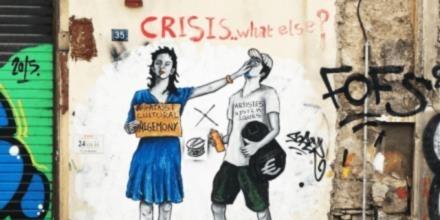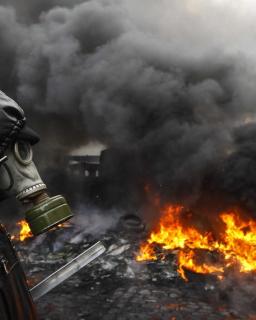
Mobilised as a defining characteristic of the contemporary condition, ‘crisis’ often functions as a way to mark out a critical ‘moment of truth’ or rupture. Alternatively, it is offered as a tool with which to understand the category of history, or to differentiate the past from a conflicted present. For some, crisis has become a state of ordinary ambivalence, a constant and unresolvable feature of the status quo. Forming a background to these debates is the escalating chorus of ‘crisis’ texts in popular and academic contexts alike. In this growth industry – richly illustrated by images of violent protest and reform; by news of corruption, incompetence, and injustice; and by consecutive environmental disasters – the urgency of crisis is conveyed through its implication in the networks and structures that influence our individual and collective lives. And yet, despite the growing ‘crisis industry’, humanity has grappled for centuries with an intellectual history of crisis, with practices of critique and dissent, as well as with a past that often sees itself as on the cusp of an irredeemable crisis – often considered, in retrospect, part of a ‘generative’ process.
Seeking to explore all facets of crisis, plus the potential connections that might exist between and across them, the HRC encouraged contributions from researchers working in all disciplinary and interdisciplinary fields, historical eras and geographical contexts, as well as those offering issue, topic, and case-study based approaches to the theme of ‘crisis’. Key questions included: How are we today to understand intellectual, ethical, moral, and epistemological crises? What qualifies (or quantifies) as a crisis? What is the artistic, cultural, political, social, or psychological expediency of crisis? How does ‘crisis’ relate to ideas and practices of ‘criticism’ and ‘critique’? What, if anything, differentiates our current experience from prior experiences of crisis? How can disciplinary debates inform political change, or vice versa? Is there any potential for the humanities to have an impact on public conceptions of crisis? What is at stake when a researcher undertakes to examine crisis, and what ethical and other responsibilities does the researcher have in conducting this work? Are we really in a new age of crisis – and, if so, how so?
